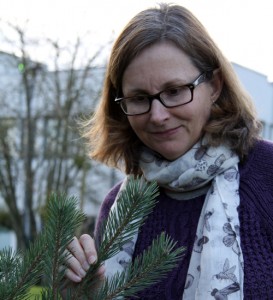Predicting biological invasions globally to inform policy
Predicting biological invasions globally to inform policyHelen RoyUK Centre for Ecology and Hydrology
The Intergovernmental Science-Policy Platform on Biodiversity and Ecosystem Services (IPBES) Global Assessment’s message is stark: biodiversity – the diversity within species, between species, and of ecosystems – is declining faster than at any time in human history. Invasive non-native species introduced by humans into regions beyond their natural distribution, were identified as one of the five top direct causes of biodiversity loss. Biological invasions can threaten biodiversity and ecosystems, particularly through their interactions with other drivers such as climate change. I will share insights into invasion ecology from broad patterns and processes to approaches in surveillance and monitoring, including citizen science. I will highlight the importance of collaborative, interdisciplinary partnerships including the forthcoming IPBES global thematic assessment on invasive non-native species. Networks established through these initiatives have benefits for people, science and nature.
